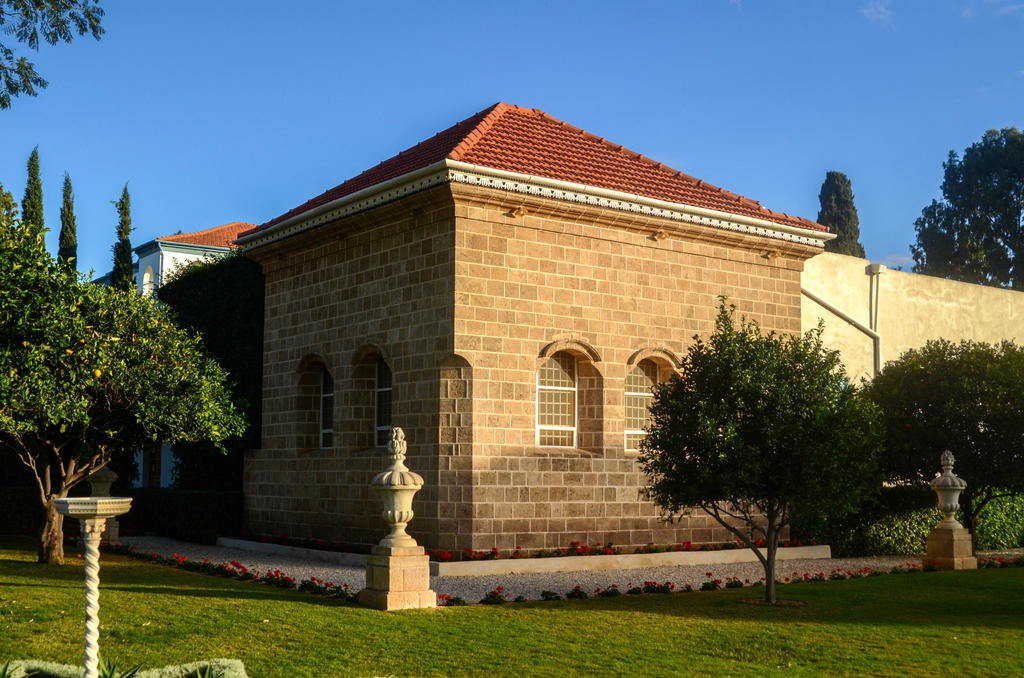The Shrine of Baha’u’llah, located in Acre, Israel, stands as a majestic edifice that not only reflects architectural grandeur but also embodies profound spiritual significance. As the burial place of Bahá’u’lláh, the founder of the Bahá’í Faith, this sacred space has been designed to inspire reverence and reflection. Its very existence offers an invitation to contemplate the broader themes of equality, unity, and the transformative power of faith.
In exploring the spiritual nuances of the Shrine, one embarks on a journey towards understanding the fundamental tenets of Bahá’í teachings, particularly as they pertain to equality. This sacred space serves not merely as a memorial but as a laboratory for examining the virtues that underpin the Bahá’í Faith, urging followers and visitors alike to re-evaluate their perspectives on social justice and human dignity.
An initial examination of the design and ambiance of the Shrine reveals the intentionality behind its structure. Surrounded by meticulously landscaped gardens, the environment promotes a sense of tranquility and encourages introspective contemplation. The integration of nature symbolizes the interconnectedness of all creation, reflecting the Bahá’í belief in the oneness of humanity. As one strolls through the gardens, it becomes evident that beauty and order are manifestations of divine harmony, serving as a poignant reminder of the importance of cultivating peace within oneself and within the community.
At the heart of Bahá’í teachings is the principle of equality. The Shrine mirrors this ethos in its universal appeal; it is a place where individuals from diverse backgrounds, cultures, and faith traditions find solace and a sense of belonging. This inclusivity is paramount in a world often marred by division and strife. The very act of pilgrimage to the Shrine is a testament to the notion that all paths leading to the Divine share commonality in their search for truth. Herein lies an opportunity for an experiential understanding of the transformative power of equality and unity.
This foundational principle is further elucidated through Baha’u’llah’s writings, which assert that the time has come for humanity to abandon prejudices of race, class, and religion. In this light, the Shrine stands as a beacon of hope and a catalyst for societal change. The architectural elements, with their harmonious blend of Western and Eastern designs, serve as a literal and figurative bridge, fostering a shift in perspective. Observing the Shrine prompts an inquiry into the interactions one has with others in their daily lives—are they conducive to healing divisions, or do they reinforce existing barriers?
Moreover, the Shrine invites contemplation on the importance of personal transformation in the pursuit of global equality. How does one embody the principles espoused by Bahá’u’lláh in their thoughts, words, and actions? Each visitor’s experience can be a microcosm of broader societal dynamics. Engaging with the teachings of Bahá’u’lláh at this sacred site may evoke feelings of responsibility to advocate for justice and equity in one’s own community.
Another significant aspect of the Shrine of Baha’u’llah is its international significance as a site of pilgrimage for Bahá’ís around the world. This global gathering promotes a sense of shared mission, reinforcing the idea that spirituality transcends geographical boundaries. While individuals may hail from various cultures, they converge with a unified purpose: to deepen their understanding of equality and to promote the very teachings that Bahá’u’lláh exemplified throughout his life. Such a gathering can ignite a profound curiosity about how these teachings resonate within different contexts, urging individuals to explore the implications of Bahá’í principles in their own societies.
Furthermore, the ongoing preservation and representation of the Shrine reflect a commitment to upholding the values of the Bahá’í Faith. The maintenance of this sacred space illustrates the collective responsibility of Bahá’ís to care for their spiritual heritage, reinforcing the idea that stewardship extends beyond one’s immediate community to include global citizenship. The physical upkeep of the Shrine acts as a reminder of the collective human endeavor required to maintain social equity and justice.
The teachings embodied by the Shrine of Baha’u’llah advocate for a paradigm shift in how we view one another. Realizing that every person is inherently worthy of dignity and respect can catalyze significant societal transformations. The principles of equality, as illuminated within this sacred space, prompt us to ask challenging questions: How can we transcend our differences? What steps must we take to ensure that our communities reflect the values of justice and unity that the Bahá’í Faith espouses?
In conclusion, the Shrine of Baha’u’llah stands not merely as a testament to the life of a prophet but as a robust symbol of the teachings that call for a reawakening of the collective human spirit. Through its embodiment of equality, unity, and inclusivity, it calls on individuals to engage in a reflective practice that nurtures societal change. Visiting the Shrine can inspire a deeper exploration of one’s beliefs and actions, ultimately leading to a more profound commitment to fostering equality in their personal and communal spheres. As we navigate the complexities of modern existence, let us draw inspiration from this sacred space, empowering ourselves to advocate for a more equitable world for all.
